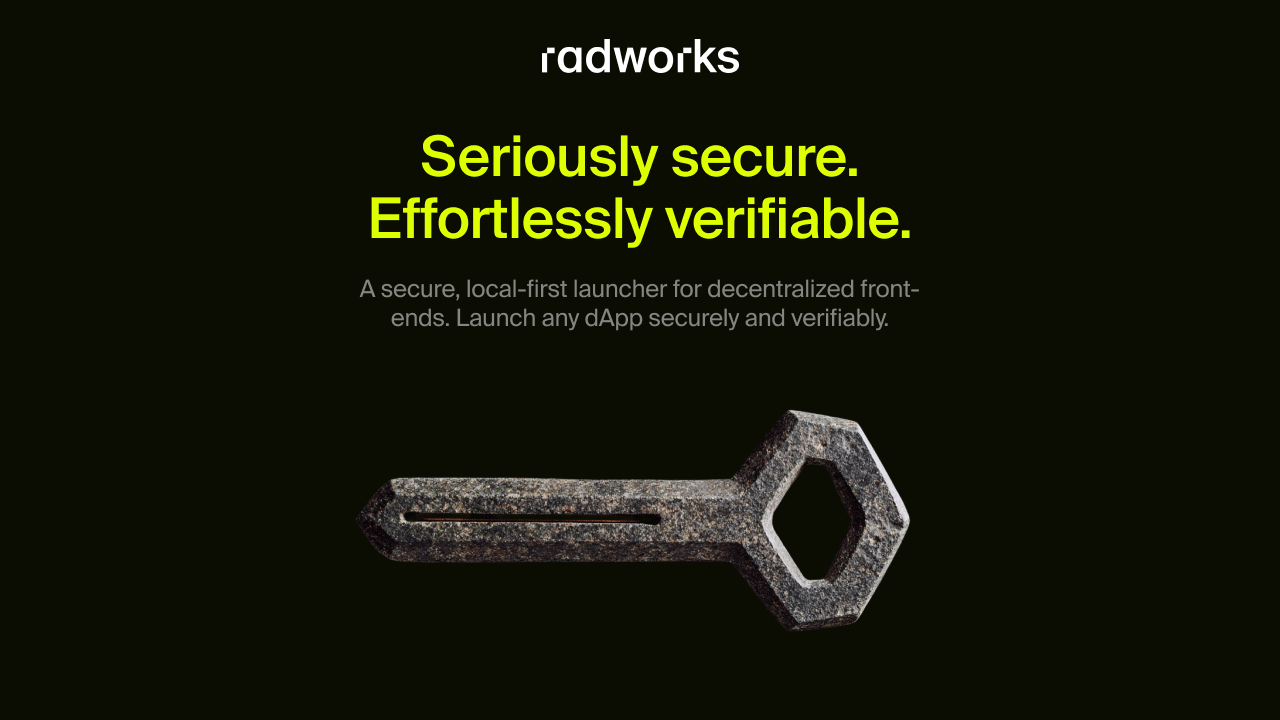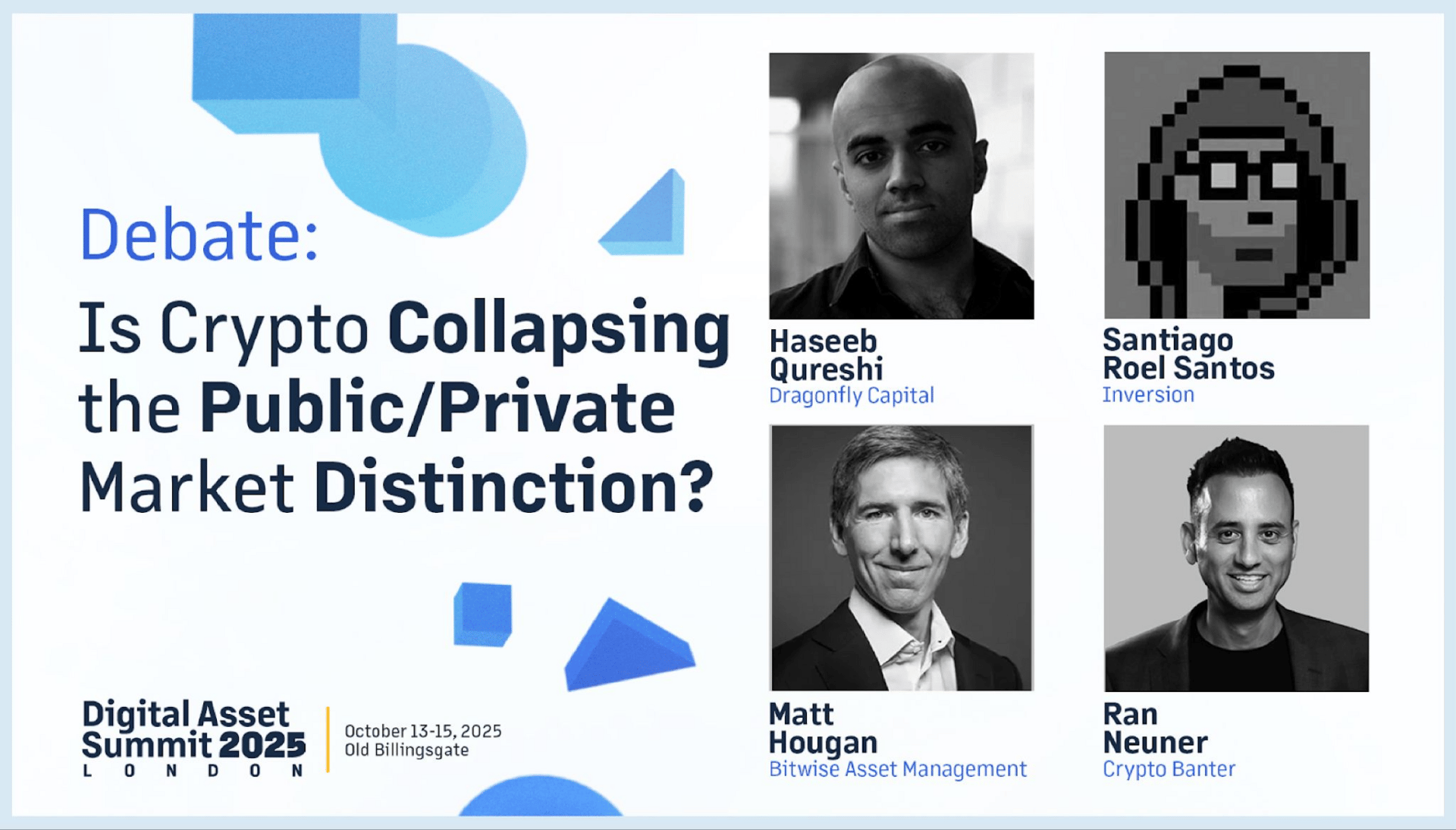- Empire
- Posts
- 🧠 You're never wrong
🧠 You're never wrong
Investment, certainty, belief

Brought to you by:
Everything you’ll read in today’s newsletter is absolutely correct.
At least, until proven otherwise.
In today’s edition of Empire, Byron Gilliam of The Breakdown newsletter discusses the psychological phenomenon of always thinking we’re correct until the exact moment we change beliefs, and how that illuminates trends in crypto investing.
Clear writing isn’t just about words — it’s about clear thinking. That’s why Blockworks’ Byron Gilliam (author of The Breakdown newsletter) put together a free guide on how to write about crypto.
It’s not a list of “10 hacks for better headlines.” It’s hard-earned lessons from someone who’s been making sense of markets for years.
Download the guide here.
🙈 The perks and perils of never knowing you're wrong
“Properly speaking, there is no certainty; there are only people who are certain.”
In 2008, a surgery patient at the highly regarded Beth Israel Deaconess Medical Center in Boston awoke from anesthesia, looked down at her bandages and asked why they were on the wrong side of her body.
She had gone into surgery expecting an orthopedic procedure to be done on her ailing right leg and woke up to find out it had been done on her left.
After a thorough investigation, a hospital executive explained what had happened: “For whatever reason, [the surgeon] simply felt that he was on the correct side” of the patient.
As explanations go, that must have been an unsatisfying one for the unlucky patient.
But it’s an illuminating one for the rest of us.
In Being Wrong: Adventures in the Margin of Error, Kathryn Schulz explains that we almost always have the feeling of being on the correct side of things, no matter how far over on the wrong side we are.
The core of the problem? “We cannot feel that we could be wrong.”
Schulz means that literally, explaining that it’s a logical impossibility to recognize when you’re wrong about something.
“The moment in which we can logically say ‘I am wrong’ simply doesn’t exist,” she writes. “In becoming aware that a belief is false, we simultaneously cease to believe it.”
It’s like a Heisenberg Uncertainty Principle of wrongness: “We can be wrong, or we can know it, but we can’t do both at the same time.”
If that’s too abstract for you, ask yourself what you’re wrong about right now.
I’ll wait.
You probably haven’t thought of anything, because whatever you’re wrong about, you don’t know it yet.
But you must be wrong about something.
It’s just impossible to know what that something is until after you’ve changed your mind about it — at which point you’re no longer wrong.
“We are absolutely right about something up until the very instant that, lo and behold, we are absolutely right about something else,” Schulz writes.
We are all Wile E. Coyote: after he’s gone off the cliff, but before he’s looked down to see he’s running on air.
Schulz has a simple explanation for why we haven’t noticed we’re wrong: “It feels like being right.”
We all enjoy that feeling, of course.
“The experience of being right,” Schulz writes, is “one of life’s cheapest and keenest satisfactions.”
But it’s also fundamental to who we are: “We are bad at recognizing when we don’t know something," she adds, “and we are very, very good at making stuff up.”
This explains a lot about crypto investing, I think.
As with any investing, investing in crypto is about making money (or hoping to, at least).
But it’s also about the satisfaction we take in being right.
For example, if bitcoiners were strictly concerned with protecting against a collapse of the US dollar, they could do that by buying gold.
But being right about an asset that everyone has understood for millennia wouldn’t be nearly as satisfying as being right about a brand new asset that hardly anyone understands.
And being right about bitcoin comes with the additional benefit of almost everyone else being wrong.
“If it is sweet to be right,” Schulz adds, “it is downright savory to point out that someone else is wrong.”
What do Bitcoiners enjoy more when bitcoin makes a new high: the additional paper wealth they’ve gained? Or the additional opportunity to tell everyone “I told you so”?
I’d guess it’s the latter, because if being right is sweet, “I told you so” is the squared sweetness of being right about being right.
Bitcoin offers us that opportunity to an unusual degree. When you’re right about bitcoin, you’re in a tiny minority of people that get to tell the great majority of people “I told you so.”
And unlike gold, which goes up too slowly to really gloat about, you don’t have to wait for the US dollar to actually collapse to gloat about being right.
Bitcoin is up nearly 1,000% over just the past five years, which feels like an affirmation that anyone who’s been in it that long was right about it. (And right about being right, too.)
But are we right about bitcoin?
It’s even harder than usual to say, because bitcoin is a belief-based investment.
This has its benefits: Believing in bitcoin is more fun than investing in gold because it makes you part of the Bitcoin community.
But Schulz explains that communities “are dangerously effective at bolstering our conviction that we are right and shielding us from the possibility that we are wrong.”
Has any cohort of investors ever been as high-conviction as Bitcoiners?
Notably, much of this conviction is borrowed. I’d guess that only a small percentage of bitcoin investors understand how Bitcoin works.
But Schulz would tell us that’s not unusual.
“The vast majority of our beliefs are really beliefs once removed,” she wrote. “Our faith that we are right is faith that someone else is right.”
Likewise, our faith in Bitcoin is largely faith that the few people who understand how it works are right.
Many of us probably don’t even know who those experts are. Instead, we simply have faith in the community at large.
“Other people’s certainty makes us feel certain,” Schulz explains.
That might also explain why Bitcoiners tend to be so intolerant of dissenters: “A single person breaking ranks on a single belief can threaten the cohesion of an entire community,” she adds.
Bitcoin is only worth what people believe its worth, so believers have to be extra vigilant in defending the faith.
This can be delusional. But also productive.
Being Wrong is a warning that you can’t know what you’re currently wrong about.
But the book “is far more a defense of wrongness than a defense against it,” according to its author.
Schulz goes so far as to argue that being wrong is ultimately what makes us human. “Alone among the creatures of the world, we can hatch crazy ideas, pursue pipe dreams, speculate wildly, keep faith with even the most far-fetched fantasies.”
That doesn’t always work out well for us.
But “this kind of wrongness gets us started and keeps us going,” Schulz concludes.
“Take away our willingness to overestimate ourselves, and we wouldn’t dare to undertake half the things we do.”
That might be nowhere more true than in investing — and crypto investing, especially.
Brought to you by:
The Radworks app is the most secure way to access decentralized finance.
Build, install and verify any front-end with cryptographic guarantees directly on your device.
Get early access and experience a truly secure way to interact with your favorite dApps.
2025 is the year of the corporate chain launches. Institutions are coming onchain, but does that mean crypto as a whole wins?
See your favorite Empire roundup guests break it down live at DAS London.
Get your ticket today with promo code: EMPIRENL
📅 October 13-15 | London


